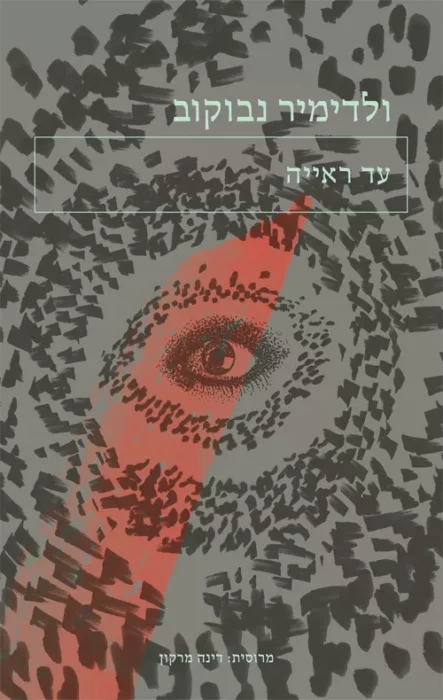For English review, please scroll down.
עד ראייה (1930) היא נובלה מוקדמת של ולדימיר נבוקוב, בה הוא מתמודד עם נושאים כמו זהות, תודעה, והקיום האנושי. הסיפור עוקב אחר סמורוב, מהגר רוסי בברלין של שנות ה־30, אשר לאחר השפלה פומבית מחליט לשים קץ לחייו. אך גם לאחר מותו, תודעתו ממשיכה להתקיים, והוא מחפש אחר אישור לקיומו דרך השתקפותו בתודעתם של אחרים.
הנובלה מציגה משחקי זהות, כפילויות, והרהורים על משמעות הקיום, אך למרות הרעיונות המעניינים, הביצוע אינו מתעלה ונותר מרוחק. הדמות הראשית, סמורוב, נותרת חידתית, והקשר הרגשי לקורא מתעמעם.
במהלך הקריאה הרגשתי שהנובלה היא יותר תרגיל מחשבתי, מין משחק רעיוני: מה קורה לדמות אם היא לא באמת מתה, אלא ממשיכה להתקיים בכל מיני גרסאות שונות של עצמה, כל אחת משתקפת בעיניים של מישהו אחר. תדמיינו את נבוקוב פותח לוח שחמט, מסדר עליו את הכלים, מציב תאורה, ואז פשוט לא משחק.
אין בנובלה עלילה שמחזיקה. יש מבנה, יש רעיון, יש אווירה, אבל לא סיפור שאיתו אפשר ללכת. זה כמו עטיפה של בניין מרהיב שאי אפשר לגור בו. מרשים, אפילו עוצר נשימה לפרקים, אבל לא באמת ראוי למגורים.
הכתיבה עצמה, מוקפדת ומלוטשת. יש משפטים יפים וגם הברקות.
אבל כל היופי המילולי מכוון כלפי פנים מה שיוצר ניכור.
נבוקוב, שספרו "לוליטה" הוא יהלום, השאיר טקסט שלדעתי לא מבושל.
בשורה התחתונה?
זו לא נובלה רעה.
אבל כשמדובר בנבוקוב, הרף פשוט גבוה יותר.
עד ראייה היא יצירה מעניינת מבחינת מחשבה, אבל לא מספקת חוויית קריאה מלאה.
היא יותר תרגיל , פחות רומן.
יותר רעיון , פחות סיפור.
עד ראיה/ ולדמיר נבוקוב
הוצאת אפרסמון, 2021, 110 עמ'
דירוג SIVI –
איכות אודיו –

Eye Witness (1930) is an early novella by Vladimir Nabokov. In it, he grapples with themes like identity, consciousness, and the essence of human existence.
The story follows Smurov, a Russian émigré living in 1930s Berlin, who, after suffering a public humiliation, decides to end his life.
But even after his death, his consciousness lingers, seeking validation through how others perceive and remember him.
The novella plays with motifs of duality, fragmented identity, and existential reflection.
And yet, despite these interesting ideas, the execution falls short and feels emotionally distant.
The main character, Smurov, remains enigmatic, and any real emotional connection with the reader fades as the narrative progresses.
As I read, the whole thing felt more like an intellectual exercise, a kind of thought experiment:
What happens when a character doesn’t truly die, but continues to exist in various versions of himself, each reflected in the minds of different people?
Imagine Nabokov setting up a chessboard, carefully arranging the pieces, adjusting the lighting, and simply walking away without playing.
No plot truly holds. There’s a structure, a concept, an atmosphere, but not a story one can follow.
It’s like the facade of a magnificent building that no one can live in. Impressive, even breathtaking at moments, but not habitable.
The writing itself is polished and elegant. There are beautiful lines and even moments of brilliance.
But all that stylistic beauty turns inward, creating a detachment.
Nabokov , whose Lolita is nothing short of a literary jewel, leaves here a text that, in my view, feels undercooked.
Bottom line?
This isn’t a bad novella.
But with Nabokov, the bar is simply higher.
Eye Witness is interesting as a mental exercise, but it doesn’t deliver a satisfying reading experience.
It’s more of a concept than a novel.
More idea than story.
לגלות עוד מהאתר Sivi's Books
Subscribe to get the latest posts sent to your email.
